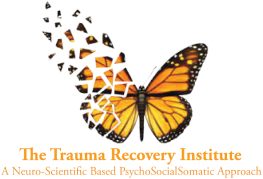17 May Conscious Parenting Training & Support at Conscious Parenting Ireland
At conscious parenting Ireland we offer individual parenting consultations and conscious parenting weekly groups to explore conscious parenting and optimal child development with one or both parents. A parenting philosophy is relevant only to the extent that it promotes parenting practices which support secure bonding. Our effectiveness as parents is in direct proportion to the strength of the bond we have with our child. Securing and maintaining that bond is our primary work as parents and is the key to optimal human development. If as parents we have not resolved our own history of insecure attachment with our own caregivers, trauma and/or neglect as a child then it becomes extremely difficult to establish and maintain a secure bond with our children. We pass down trauma from one generation to another and learnt maladaptive interpersonal behaviours are communicated consciously and unconsciously encoded in verbal and non verbal interactions with our children. If we have not had a present loving caring safe nurturing attuned parent , then it will be extremely difficult for us to provide this for our children.
Individual consultations and group work are extremely effective in supporting parents to explore and heal from their own traumatic histories whilst also learning effect toools and healthy parenting skills to create secure bonds with their children which is necessary for optimal brain development. Our nervous system is experience dependant, our early experiences are wired into our nervous system. If we grow up in a stressed anxious home, then we become stressed and anxious as adults. Our Conscious Parenting group takes place weekly. This group is a support group for parents facilitated through the framework of conscious parenting philosophy and a safe supprtive space to explore your own attachment styles.
Dr. Maté speaking for the Healing our Children 2016 World Summit on why he believes that every disorder and disease has its roots in early childhood, why our culture hasn’t supported healthy childhood development for years, and what we can do about it. Dr. Mate confirms that raher than looking at the children’s behaviour we need to look at ourselves and explore what are our children communicating in relation to how we are in ourselves and in the relational space with our children.
Guiding Principles of Conscious Parenting
While we want to use our inner compass to keep ourselves on course, it also helps to know where we’re going. For that, a road map is essential, and for ours, we’ll be using eight guiding principles of conscious parenting.
Principle 1: All behavior is a communication. Behavior reflects the internal state of the individual and the relationship’s level of connection.
Principle 2: The parent-child relationship is more important than any behavioral intervention, consequence, or punishment.
Principle 3: Children unfold neurosequentially, and quality, connected relationships allow for the unfolding. A need met will go away; a need unmet is here to stay.
Principle 4: Behaviors occur on a continuum. Behaviors in children (and parents, too) correlate to the parents’ own neurodevelopment and attachment status.
Principle 5: Parental interpretation of behaviors comes from both a conscious and subconscious place, resulting in positive or negative neurophysiologic feedback loops.
Principle 6: All individuals have a right and a responsibility to learn to express their feelings appropriately. Feelings allow us to connect to our internal guidance system.
Principle 8: The Love Cup, We need to create communities of support for ourselves and for our children. We need to take care of ourselves so that we can take care of our children. If our love cup is empty, we will have nothing to give to our children and their needs will trigger our own trauma history when perhaps our own needs were not met. This can create Disconnection.


Sorry, the comment form is closed at this time.